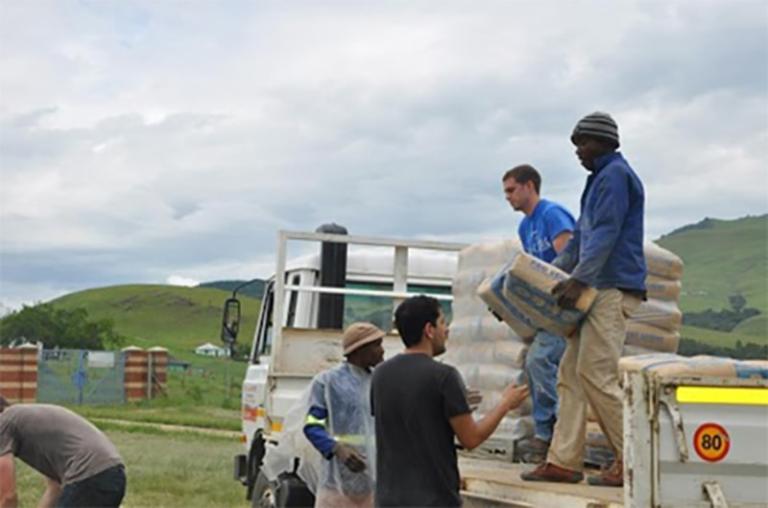
“It is our obligation, not an option, to denounce what is not normal on the planet. It’s a moral obligation and a professional obligation.”
Founding President of Engineers Without Borders/USA Dr. Bernard Amadei kicked off National Engineers Week at Kettering University by delivering a keynote address entitled, “Global Engineering for a Small Planet: A Vision of Success” on Feb. 23.
Amadei opened his presentation with a question about an engineering education: “Do today’s engineering graduates have the skills to handle the problems of today and the next 20 years?”
Amadei’s problems of today and the future are related to climate change, redeveloping war-torn areas, reducing conflict and enhancing peace.
Amadei is a professor of Civil Engineering at the University Colorado at Boulder and his current research interests include sustainability and global development through the Mortenson Center in Engineering for Developing Communities. Amadei is a member of the National Academy of Engineering and a recipient of the Hoover Prize which is awarded annually to an individual who exemplifies “outstanding civic or humanitarian service” in the engineering profession.
“How do we train engineers to make decisions in the global context?” Amadei said. “It is our obligation, not an option, to denounce what is not normal on the planet. It’s a moral obligation and a professional obligation.”
By “not normal,” Amadei is referring to the billions of individuals in the world living without adequate housing, electricity, sanitation, access to water and affordable healthcare. The absence of these items results in widespread poverty across continents and Amadei believes these voids can be filled with modern engineering.
“Poverty, in my opinion is unnecessary pain,” Amadei said. “We have the technology today to provide clean water and sanitation to everyone to solve poverty.”
Amadei described the three types of communities that engineers have to consider - developed world, emerging markets and the developing world. Each of these types of communities have differing engineering, environmental and economic demands depending on where they exist on the development spectrum. However, the individuals in each of these communities are striving towards the same pursuit towards a greater quality of life.
Amadei asserts that the engineer of the future must balance these three communities by broadening the focus beyond technology solutions by working to become a change-maker, peace-maker, social entrepreneur and a facilitator of sustainable human development.
Amadei believes that the engineer of the future must be equipped with strong analytical skills, practical ingenuity, creativity, business and management skills and high ethical standards. In additional to personal awareness, Amadei emphasized the importance of a global awareness so that engineers can best utilize their talents to solve the most dire problems of the day.
“Engineers have many talents and many tools that can make the world a better place,” Amadei said. “There’s a need for innovation in all areas of engineering. A need also for innovation translating to business development that will create jobs that will lift people out of poverty.”